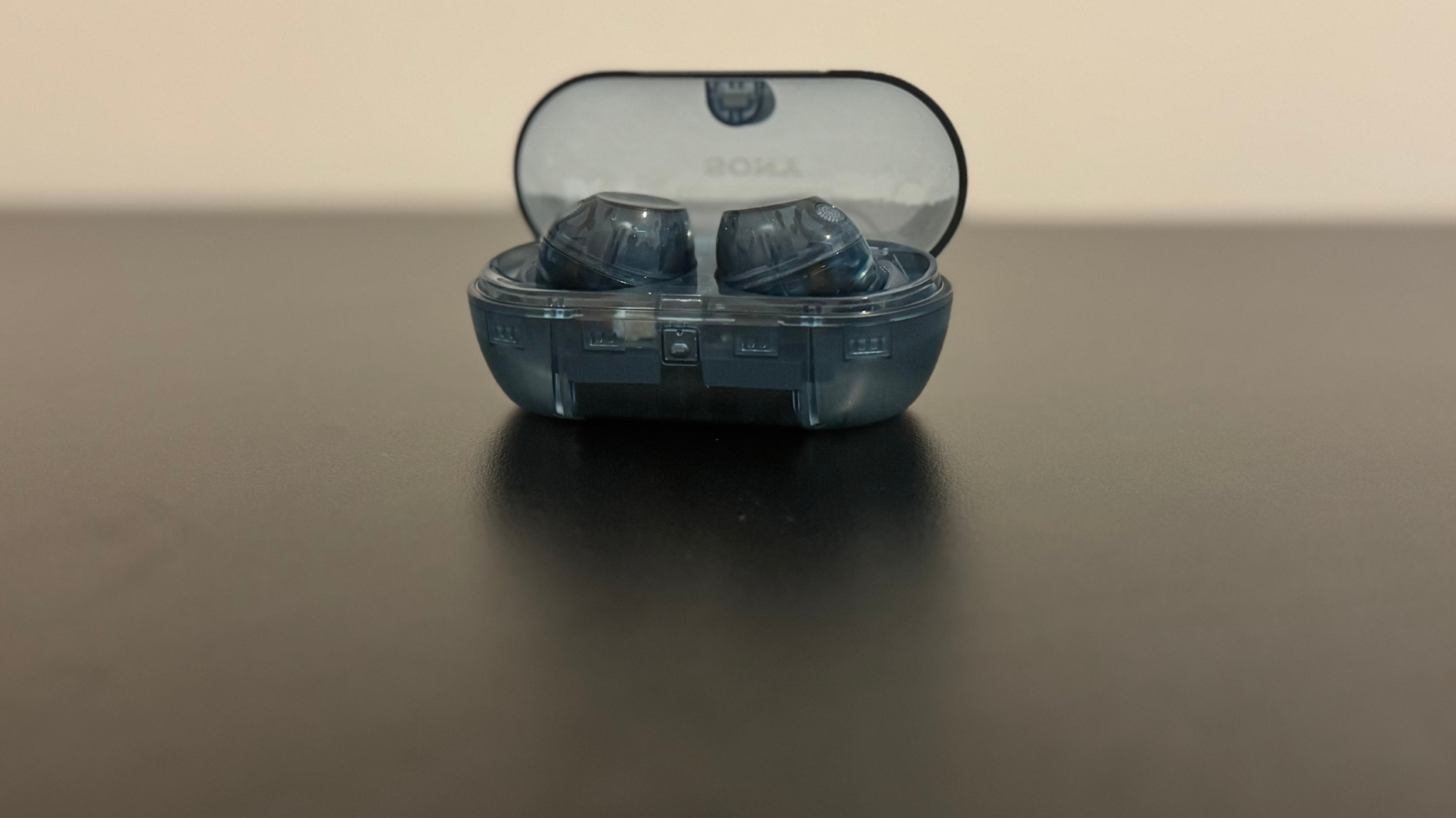2000's action-RPG Wander Wonder looked like Zelda, but it's so much more than a simple link to the past
This adventure, released in three episodes in a Japanese magazine, is from the studio best known for the Puyo Puyo puzzle games.

Pasokon Retro is our regular look back at the early years of Japanese PC gaming, encompassing everything from specialist '80s computers to the happy days of Windows XP.
I'll admit it's easy to look at a few screenshots of Wander Wonder, a PC-exclusive sword-swinging mix of fantasy adventure and dungeon-like puzzling from the year 2000, and immediately stick it in the "Zelda clone" box alongside all the other well-intentioned attempts to copy Nintendo's eternally popular formula.
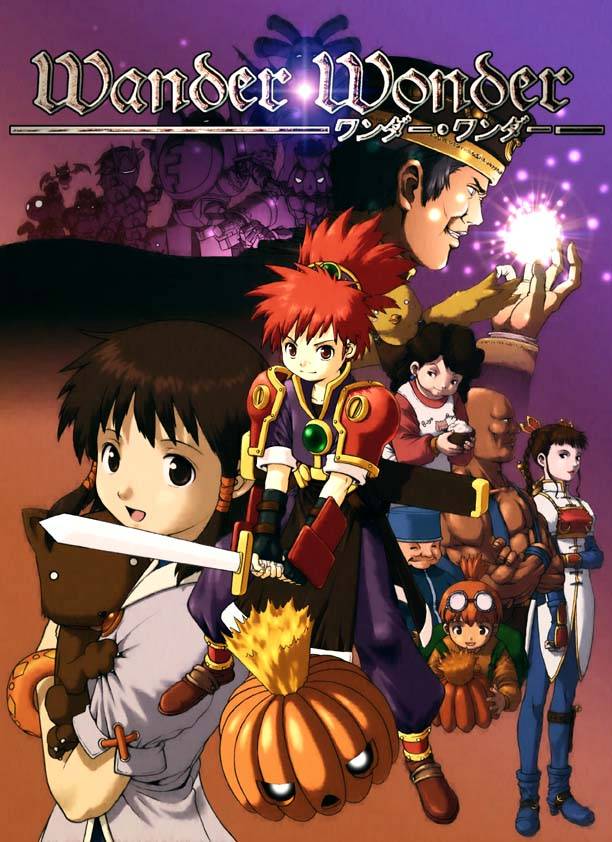
Been there, done that, got the tunic. Yawn.
There's a little truth in that kneejerk comparison for Wander Wonder. The adventure itself follows the exploits of Jino, an energetic soul with a mop of cherry-red hair, and like all sword-wielding leads of a certain age he's more than happy to wade into mysterious ruins filled with switches and locked doors, help the local townsfolk with tasks they really could sort out themselves if only they thought to move from their assigned spot, and eventually rescue innocent people from the clutches of violent godlike abominations with powers far beyond our own.
In fact this game is so like Zelda it even manages to beat the series to one of its most contentious modern features: weapon durability. Yep, that's right—Jino will need to keep multiple swords, axes, shields, and more in his inventory (or find replacements along the way) if he wants to survive the gauntlets between the game's magical save statues.
But as superficially similar as it may appear, Wander Wonder's developer knew better than to think rehashing somebody else's good idea was all it takes to make a great game.
And that's because Wander Wonder was created by Compile, best known for the Puyo Puyo series, which was itself a dungeon crawling RPG before it became a colourful puzzle game. Dig a little deeper into the company's past and you soon find a long and impressively varied history studded with blob-free games of all types on numerous home computers; from the ridiculous raccoon-starring puzzling of Tanukids to the serious tactical fantasy wars of the Devil Force series.
Keep up to date with the most important stories and the best deals, as picked by the PC Gamer team.
Compile had such a strong following for a long time it released not only enough merchandise to bankrupt even the wealthiest fan, but also several long-running versions of DiscStation magazine, spanning the late '80s to the early '00s. Each issue would come with floppy disks or CDs containing a mix of playable demos, fun extras, and entirely original games too. It was here that Wander Wonder made its debut, split into three episodes across issues 24, 25, and 26 of the Windows version of DiscStation magazine.
It's this episodic format—maintained for the final boxed version of the game shown here—that gives Wander Wonder a certain spark and sense of forward momentum rarely found in this head-scratching genre, like the difference between sitting through a bum-numbing four hour movie in one go or watching a prestigious TV series made up of eight half hour episodes. Each new segment of Wander Wonder has its own arc and focus, and the screen-sized title cards make it very clear that you're moving on towards the next exciting part of Jino's adventure.
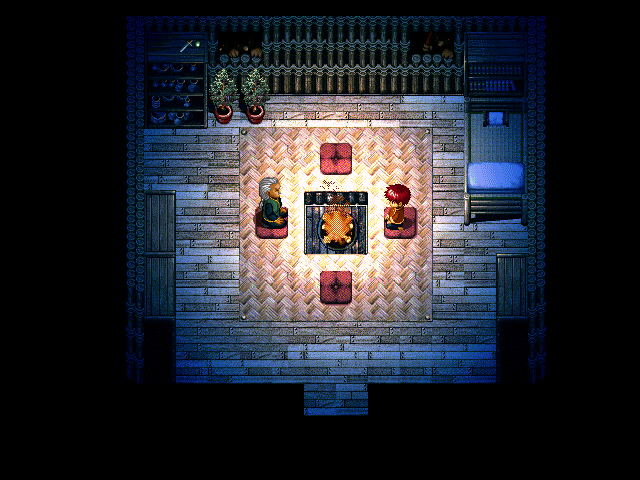
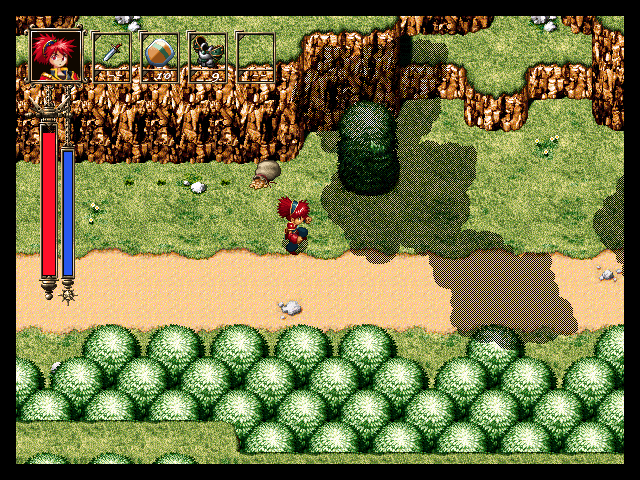
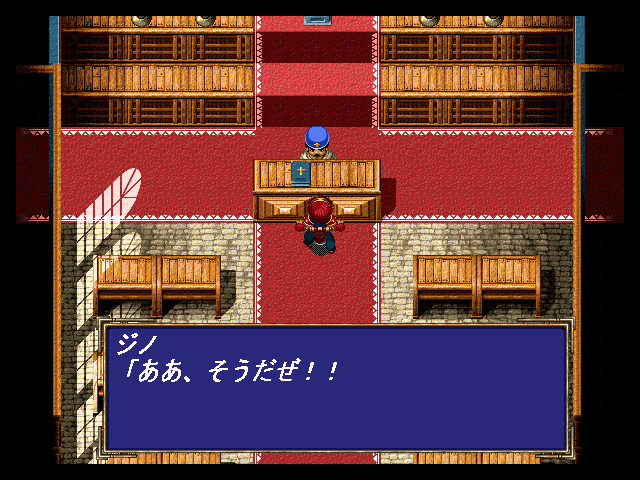
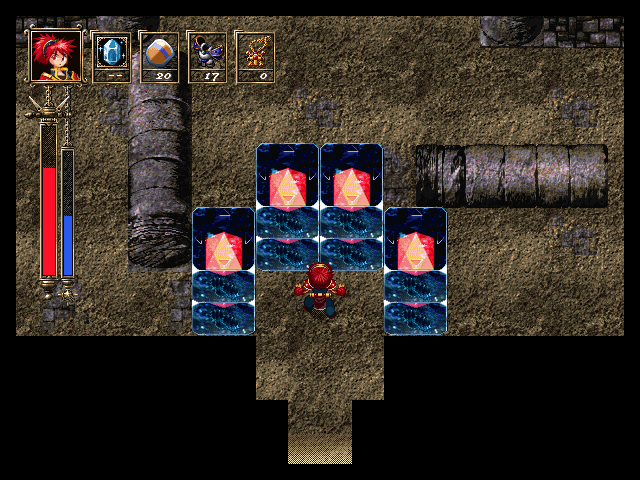
Our expressively animated hero suits the game's refreshingly headlong approach to pace and plot well. He's here because he wants to have fun exploring old places stuffed with treasure, and you'll easily believe it because everything you can do perfectly reflects his "pull the switch first, worry about the consequences later" attitude to exploration.
This is a game that shoves elegant item usage aside in favour of rough 'n' ready clambering—just about everything you can see has been made to be jumped on top of or manipulated in some fashion. A pot (or a person) can be used as a stepping stone, allowing Jino to reach the top of a nearby tree—a tree planted next to a house, its roof then becoming the perfect place to leap onto another, and another, until you finally reach the easily spotted but difficult to reach high spot some tantalising treasure has been tucked away in.
Elsewhere jets of water can be magically frozen to create impromptu ice platforms, flapping bats can be jump-attacked to oblivion, and a heavy hammer can be used to bash sturdy poles into the ground, which in turn should send a well-placed iron ball flying high into the air. The game's got an improvised hands-on energy to it that makes you believe, even though it is of course not entirely true, that this is your fantasy world to experiment with as suits you, success often coming from your own raggedy actions rather than a more hands-off Block A on Tile B opens Door C setup. Wander Wonder wants you to break stuff and leap across floating platforms, not fuss over keys.
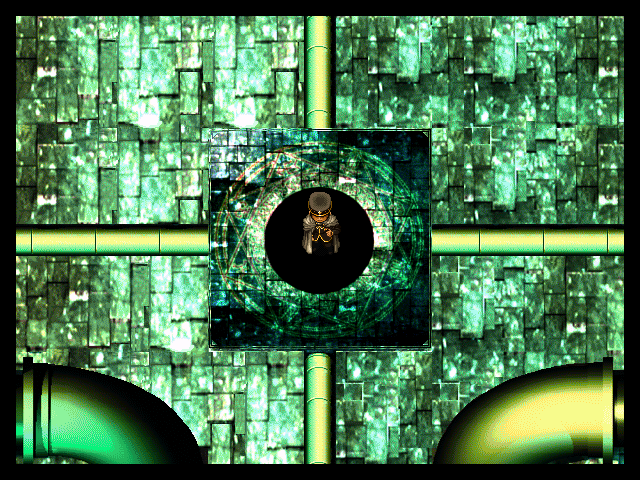
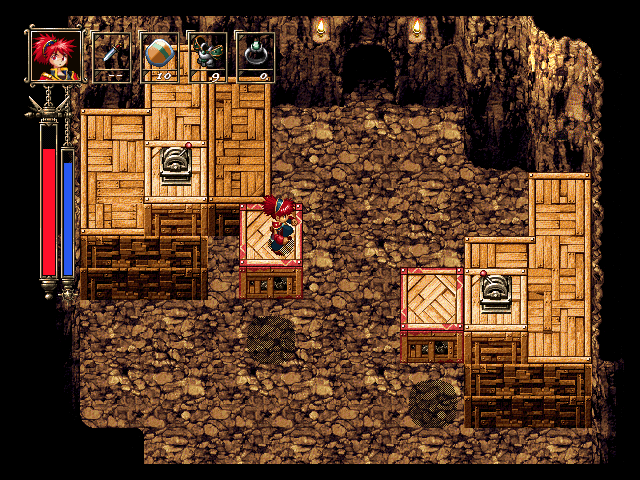
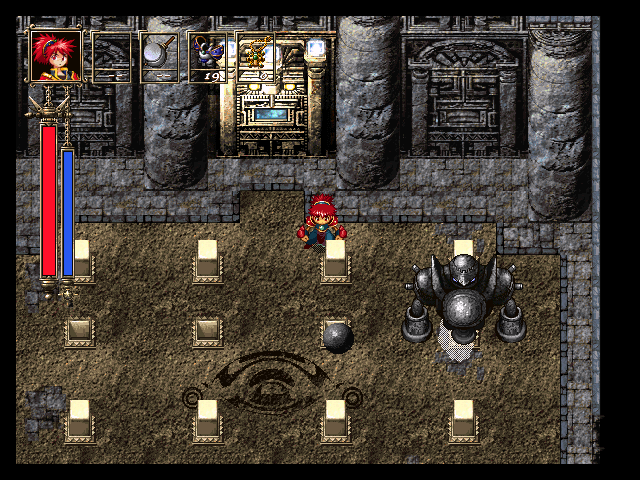
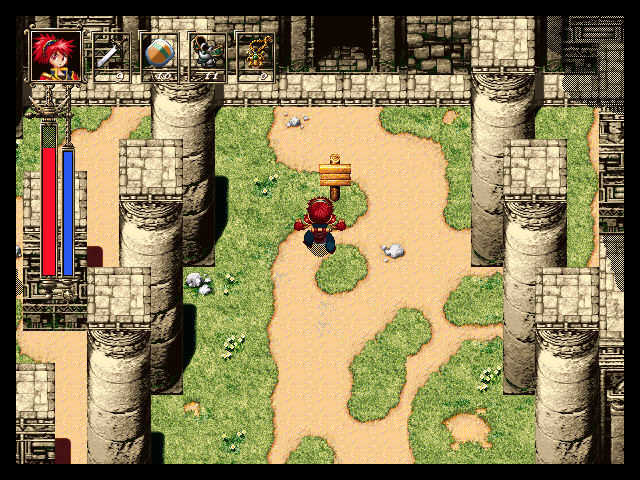
It's not all about running around at breakneck speeds while throwing fireballs at monsters though, and from time to time Wander Wonder takes a minute to have a quiet breather, indulging in a heartfelt conversation or maybe even a little comedy before you're dashing off again to jump-slash another huge enemy in the face. These slower moments and many other lulls in the game are helped by an unlikely source: Jino. He's much more talkative than most block-pushing adventurers, even going so far as to comment on notable progress-blocking obstacles when he encounters them for the first time, or saying things like "I guess I'd better head back and talk to the priest" after passing a significant point in the story.
OK, so it's not the most exciting dialogue any of us will ever read, but I'm sure most of us are grateful for any unsubtle hint that'll save hours of wondering if we've missed an item-filled side room inside a monster-packed lair or just need to head somewhere completely different. The game wants you to feel the way we're told Jino does, happily rushing ahead into the unknown.
There's a noticeable undercurrent of confidence running through Wander Wonder. The game is happy to go off and do its own thing as often as it feels like it, setting itself apart from similar experiences through subtle tone and pacing rather than big, obvious, gimmicks.
Spending a few hours with this is like watching a master craftsman at work: it is so certain the finished piece is well made and engaging it doesn't need to constantly shout about its greatest ideas from the rooftops—or waste any time worrying about what the competition's doing either. Wander Wonder is content to simply be, well, a Windows wonder.

When baby Kerry was brought home from the hospital her hand was placed on the space bar of the family Atari 400, a small act of parental nerdery that has snowballed into a lifelong passion for gaming and the sort of freelance job her school careers advisor told her she couldn't do. She's now PC Gamer's word game expert, taking on the daily Wordle puzzle to give readers a hint each and every day. Her Wordle streak is truly mighty.
Somehow Kerry managed to get away with writing regular features on old Japanese PC games, telling today's PC gamers about some of the most fascinating and influential games of the '80s and '90s.

